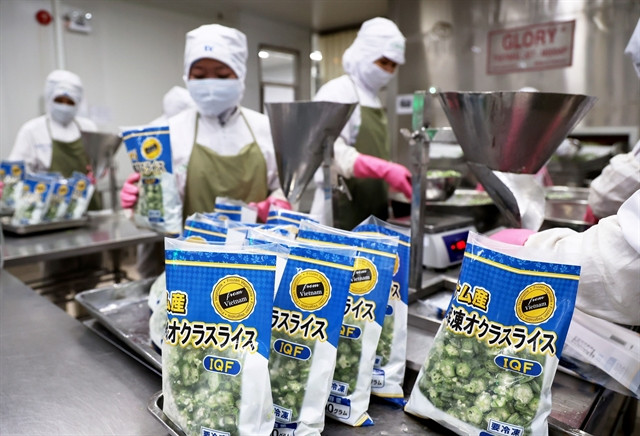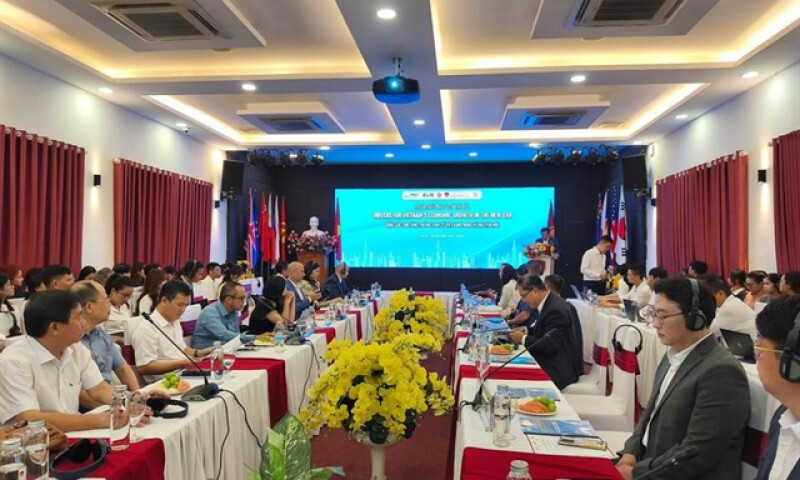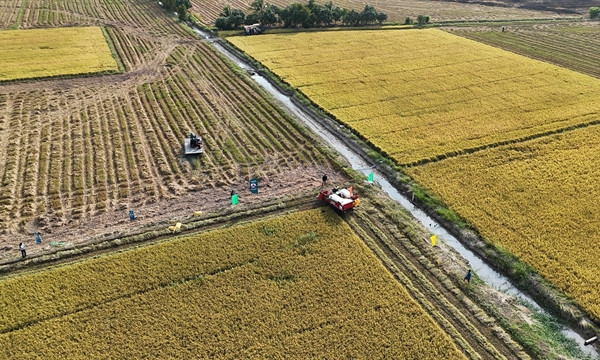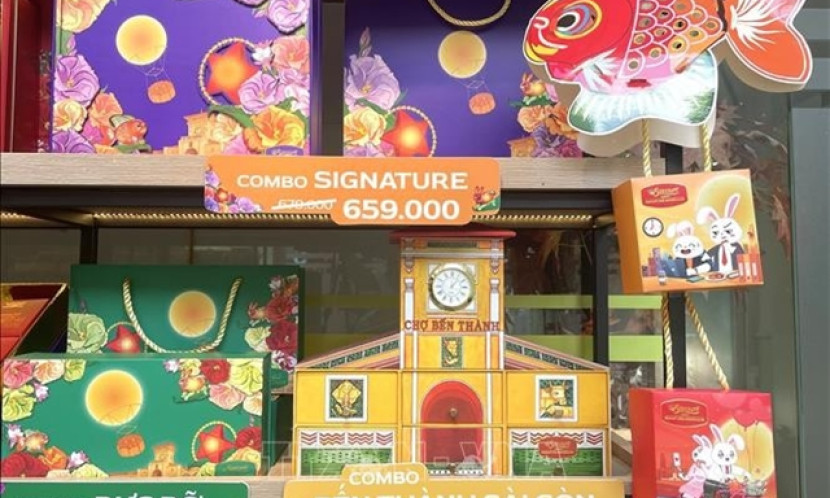Agriculture sector records trade surplus this year
This year, the agriculture sector's production value is estimated to increase by over 3.2 per cent, while agricultural, forestry and fishery export value is expected to reach a historic high of $62.4 billion, up 18 per cent year on year.
The agriculture sector this year is estimated to gain a surplus record of nearly US$19 billion, an increase of 53 per cent compared to 2023, according to the Ministry of Agriculture and Rural Development (MARD).
This year, the sector's production value is estimated to increase by over 3.2 per cent, while its agricultural, forestry and fishery export value is expected to reach a historic high of $62.4 billion, up 18 per cent year on year.
Those were the numbers revealed at the conference to promote agricultural, forestry and fishery exports held in HCM City on December 16, by Ngô Hồng Phong, director of MARD's Department of Quality, Processing and Market Development.
Of which, the export turnover during January-November reached $56.7 billion, an increase of over 18 per cent year on year. This is the highest record ever, surpassing the yearly target of $54-55 billion set at the beginning of the year.
Therefore, the sector gained a trade surplus of $16.5 billion in the first 11 months, an increase of 52.8 per cent compared to the same period last year.
Leading the export growth in the group of the agricultural products are coffee (up 56.9 per cent), pepper (53.3 per cent), rubber (24.6 per cent) and rice (10.6 per cent).
There are up to 11 groups of products with export turnover of over $1 billion, of which seven items with value of over $3 billion. They included wood and wood products ($16 billion), vegetables and fruits ($7.1 billion), rice ($5.8 billion), coffee ($5.4 billion), cashew ($4.3 billion), shrimp ($3.8 billion) and rubber ($3.2 billion).
Deputy Minister of Agriculture and Rural Development Phùng Đức Tiến said the sector's good business performance was due to the restructuring of the agricultural sector and the promotion of applying science and technology for production and business.
Responding to drought and salinity, developing raw material regions associated with processing and expanding export markets have created momentums for the industry's sustainable development.
In addition, signed free trade agreements have also created a solid foundation to promote national export growth, including agricultural export value.
Tiến also believed that Việt Nam will continue to sign protocols on animal and aquatic products next year, making the agriculture achieve higher growth rate in the future.
Besides accelerating exports to traditional markets, Việt Nam has opened up to new markets, especially the Halal market in the Middle East.
However, Phong said that geopolitical changes, military conflicts and especially the re-election of President Donald Trump will pose many challenges to Việt Nam's agricultural export.
The challenges include protectionist policies with high tariff barriers, increasing technical regulations and requirements for sustainable and green development for agricultural, forestry and fishery exports from other countries, including from Việt Nam.
To adapt to these challenges, departments, localities, associations and enterprises need to continue to promote the restructuring of the agricultural sector, according to MARD. They should prioritise promoting key export products, such as rice, aquatic products and vegetables towards improving quality and production efficiency.
In addition, they need to develop large raw material regions, clusters linking production - processing and consumption of agricultural products.
Along with that, improving the quality, value and competitiveness of agricultural products in domestic and foreign markets should be prioritised. Building value chains for each kind of agricultural products is also needed.
Trade Counselor of Việt Nam in China Nông Đức Lai recommended that Việt Nam's authorities need to strengthen the management and supervision of export goods quality.
At the same time, they should regularly update information about regulations, quality standards and food hygiene and safety requirements of importing countries for companies in Việt Nam.
Deputy Director of MARD's Plant Protection Department Lê Văn Thiết said they need to improve the production stages to ensure traceability and packaging in accordance with the regulations of importing countries.






